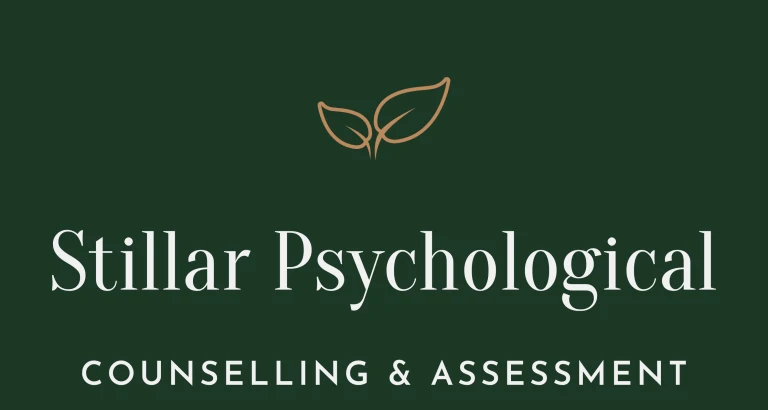When in search of help for obsessive-compulsive disorder (OCD), one of the most important decisions involves knowing the types of therapy for OCD available. This choice plays a big part in how effectively you manage symptoms and improve your quality of life.
OCD is a complex condition that can interfere with daily activities, but the good news is that therapy can make a powerful impact. In this guide, we will examine different therapeutic options for OCD, and help you realize how they deal with symptoms.
Furthermore, we will touch upon the relationship between OCD and conditions like ADHD, anxiety, and others, which can complicate the treatment process.
Types of Therapy for OCD and Its Impact
Characterized by repetitive behaviors (compulsions) and persistent, intrusive thoughts (obsessions), OCD is a mental health condition. These obsessions and compulsions can interfere with everyday life and often lead to distress.
In many cases, those with OCD struggle with anxiety or even depression. Some may experience co-occurring conditions like ADHD. Recognizing the complexity of OCD is the first step in choosing the appropriate therapy.
While every person with OCD may experience different symptoms, the right approach can help manage the intrusive thoughts and compulsive behaviors that disrupt daily functioning.
Cognitive Behavioral Therapy (CBT) for OCD
One of the most commonly recommended OCD therapy options is Cognitive Behavioral Therapy (CBT). CBT helps individuals challenge distorted thought patterns and behaviors.
For OCD, a specific form of CBT called Exposure and Response Prevention (ERP) is widely used. ERP encourages individuals to face their obsessions and resist performing the compulsive behaviors. Over time, this process helps reduce the anxiety associated with these thoughts and allows individuals to regain control over their actions.
The foundation of ERP lies in the principle that confronting anxiety-producing stimuli without resorting to compulsions helps the brain to unlearn maladaptive responses. This therapeutic technique has been proven to reduce the frequency and intensity of OCD symptoms. It requires patience and consistency, but can lead to improvements in managing intrusive thoughts.
Exposure and Response Prevention (ERP)
As part of CBT, Exposure and Response Prevention (ERP) specifically focuses on the compulsive behaviors that individuals with OCD often struggle with.
ERP involves gradual exposure to situations that provoke obsessive thoughts, with the goal of preventing the individual from engaging in the typical compulsive behaviors. This repeated practice reduces the power of the obsessions and weakens the compulsive cycle that sustains OCD.
ERP may be uncomfortable at first. This is because it challenges individuals to face their fears without using their usual coping mechanisms. However, many people find long-term success with this therapy, especially when working with a skilled OCD therapist who provides guidance and support throughout the process.
Medication and Therapy: An Integrated Approach
For some people with OCD, therapy alone might not be enough. In these cases, combining therapy with medication can help manage symptoms more effectively.
Selective serotonin reuptake inhibitors (SSRIs) are commonly prescribed to help regulate serotonin levels in the brain, which can influence mood and anxiety. SSRIs have been shown to help reduce the severity of OCD symptoms, especially when combined with Cognitive Behavioral Therapy.
Nevertheless, medication is typically most effective when paired with therapy. This is because the therapy tackles the root causes of the obsessive-compulsive behaviors, while medication can help manage the emotional and physical symptoms.
Acceptance and Commitment Therapy (ACT)
Another form of therapy gaining recognition for treating OCD is Acceptance and Commitment Therapy (ACT). ACT focuses on helping individuals accept their thoughts and feelings rather than trying to eliminate them.
In the context of OCD, ACT supports individuals in changing their relationship with intrusive thoughts. Instead of trying to control or eliminate obsessions, the approach encourages acceptance and views these thoughts as part of their experience rather than something to resist or avoid.
ACT teaches individuals to focus on living in alignment with their values, rather than being consumed by the need to perform compulsive behaviors. This therapy encourages mindfulness, which can help individuals become more aware of their thoughts and feelings without judgment.
Mindfulness-Based Cognitive Therapy (MBCT)
Mindfulness-Based Cognitive Therapy (MBCT) is a therapeutic approach that combines mindfulness techniques with cognitive behavioral therapy principles. This form of therapy has shown effectiveness in treating anxiety and depression, both of which often accompany OCD. With mindfulness techniques, individuals become better at managing stress and reducing negative thought patterns.
For those struggling with OCD, MBCT can teach individuals how to detach from obsessive thoughts and recognize that these thoughts are just mental events, not truths. Through mindfulness exercises, individuals can develop a more balanced relationship with their thoughts and reduce the compulsive behaviors that arise from anxiety.
Psychodynamic Therapy for OCD
Psychodynamic therapy is another option for treating OCD. This therapy explores the unconscious mind and helps individuals understand how past experiences, often early childhood experiences, influence present behaviors and thought patterns. The goal of psychodynamic therapy is to uncover unresolved emotional conflicts and promote personal insight, which can reduce the severity of OCD symptoms.
Psychodynamic therapy can be particularly beneficial for those who believe their OCD may be linked to deeper psychological issues or unresolved trauma. It can help individuals identify the emotional root causes of their obsessive thoughts. This can lead to meaningful personal growth and symptom relief.
Supportive Therapy for OCD
Supportive therapy offers emotional support to individuals struggling with OCD. Unlike more structured therapeutic approaches, supportive therapy focuses on providing a safe, compassionate environment where individuals can discuss their challenges openly. OCD therapists who practice supportive therapy listen empathetically, validate emotions, and provide guidance for managing day-to-day difficulties.
While supportive therapy is often used as a supplement to more structured therapies like CBT or ERP, it can also play an important role on its own. It may be especially helpful for individuals who are just beginning to address their OCD.
This allows people to explore their emotions in a non-judgmental setting, which can be important for promoting trust and emotional well-being.
Group Therapy for OCD
Besides individual therapy, group therapy can be a valuable option for people with OCD. Group therapy allows individuals to connect with others who are facing similar challenges. The shared experience can create a sense of community and reduce feelings of isolation.
Group therapy also provides an opportunity for individuals to practice new coping skills in a supportive environment. Participants can share their struggles, learn from others, and offer mutual encouragement. This can be especially helpful for individuals who may feel alone in their experience with OCD.
What Does an OCD Therapist Do?
An experienced OCD therapist plays a major role in helping individuals identify and focus on the underlying causes of their symptoms. Through a number of therapeutic techniques, they guide individuals in developing effective coping strategies and managing distressing thoughts and behaviors.
OCD therapy is often a collaborative process, where the therapist and client work together to create a treatment plan customized to the individual’s unique needs and goals.
A strong therapeutic relationship is necessary for successful treatment. An empathetic therapist helps build trust and creates a safe space for individuals to explore their thoughts and feelings.
Co-Occurring Conditions: Attending to ADHD and Anxiety
It’s important to recognize that many individuals with OCD also struggle with ADHD or anxiety. These co-occurring conditions can complicate treatment. However, the right therapy can focus on all of these issues simultaneously.
For example, CBT can help individuals manage both OCD and anxiety. Meanwhile, ACT and mindfulness-based therapies offer tools for managing multiple mental health challenges.
Working with an experienced OCD therapist who is skilled in treating co-occurring conditions can help individuals develop a complete plan that deals with all aspects of their mental health. An integrated approach can be particularly beneficial for those who experience overlapping symptoms.
Finding the Right Therapy for You
Selecting the right types of therapy for OCD depends on a number of things, including the severity of your symptoms, any co-occurring conditions, and your personal preferences.
Some individuals may find success with CBT and ERP. On the other hand, others may benefit more from ACT, mindfulness-based approaches, or even psychodynamic therapy. Consulting with a qualified therapist is the best way to determine the right approach for your unique needs.
Stillar Psychological’s team of experienced therapists specializes in OCD therapy and can help you explore your treatment options. We offer a number of therapies precise to your needs, whether you’re dealing with OCD, anxiety, ADHD, or other challenges.
Our Approach to OCD Therapy at Stillar Psychological
Stillar Psychological is committed to supporting individuals with OCD through personalized and compassionate care. Our team of skilled therapists uses different therapeutic techniques, including CBT, ERP, and ACT, to help you manage your symptoms.
We know that every person’s experience with OCD is unique. That’s why we fine-tune our approach to meet your specific needs.
If you or a loved one is struggling with OCD, anxiety, or any other mental health challenges, we are here to help. Our compassionate and experienced team is ready to support you in overcoming obstacles and living a more fulfilling life.
Book an appointment online or call Stillar Psychological at (780) 999-2023 with your questions today.





















